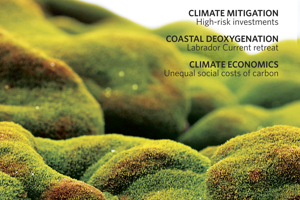
Public acceptance of resource-efficiency strategies to mitigate climate change
Read the full article here.
Rapid action to improve resource efficiency is essential for achieving climate mitigation goals. As they are likely to reshape everyday life in unexpected ways, new products, policies and business models will need to consider the public acceptability of resource-efficiency strategies, as well as the technical emission-reduction potential. Here, using consumption-based emissions modelling and deliberative public workshops, we find considerable public support for a range of resource-efficiency strategies that combined could reduce the carbon footprint in the United Kingdom by up to 29 Mt of CO2-equivalent (CO2e) emissions (a 39% emissions reduction from household products, such as cars, clothing, electronics, appliances and furniture).
Public acceptability is already high for strategies that aim to develop more resource-efficient products. Strategies that aim to encourage product sharing and extend product lifetimes were also perceived positively, although acceptance was dependent on meeting other important conditions, such as trustworthiness, responsibility, fairness, affordability, convenience, safety and hygiene.